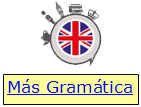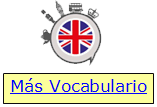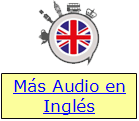 Gramática: could and couldn’t Gramática: could and couldn’t
I could swim when I was young. (habilidad en el pasado) – podía nadar
Tomorrow we could swim in the sea. (condicional) – podríamos nadar
Craig can’t play a musical instrument (now)
Craig couldn’t play a musical instrument when he was younger (past)
Craig, could / can I ask you a question? (permission)
We could go for a beer after this podcast.
Pronunciación: consonantes + vocales
“Have a” cuando una vocal va después de una consonante en inglés, los
sonidos se juntan.
“Have a cup of tea” – “have a cuppa”, “have a coffee”, “have a can of
beer”
“Got to get a lot of it”.Phrasal
verb: to set up
to set up a tent, to set up equipment (montar)
to set up a meeting (arrange, organize)
to set up a business, an organization, a foundation, a charity (fundar,
montar)
to set up a person (to trick them – hacer trampas, engañar) “The
murderer set me up”, “It was a set up”.
Vocabulario: collocations with HAVE
“to have fun”, “to have a ball, (fun v funny) – a funny joke, a funny
film, a funny person (gracioso) – a fun person (divertido) to have a
good time
To have something in common with someone – What do we have in common? –
Craig and Reza have jazz music and houseproud mothers in common!
To have time (to do things) What would you like to have more time to do?
Reza doesn’t have time to surf the Internet.
Reza has a new phone. He’s got (he has got) a new phone.
Reza’s Top Tip: Use polite language with strangers
“Where’s the bus staion?” (direct) – “Could you tell me where the bus
station is?” (indirect and more polite)
“Do you like paella?” – “Can you tell me if you like paella?”
“Can I smoke? – Do you mind if I smoke?”
“Would you mind telling me where the bus station is?”
“I’d like to know where the bus station is?”
“I wonder if you wouldn’t mind telling me where the bus station is?” |
|
|
